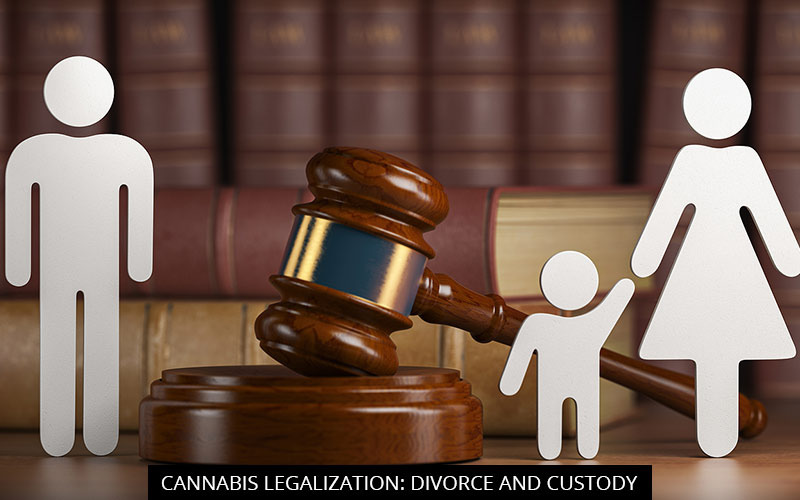
The foremost consideration by the court in determining the custody of the child(ren) in any given situation, whether divorce, intervention of child or family services or concerned family and community members, is the ‘best interest of a child’. This includes the safety of the children, the fulfillment of their physical, nutritional, and mental needs, appropriate socialization, education etc. The ability of the parent or guardian to cater to the ‘best interest of the child(ren)’ may however become questionable where there is a history, past or present, of drug and/or alcohol abuse.
In Canada, drug and alcohol use or abuse has indeed played a pivotal role in the courts determining the capacity of a parent or guardian to provide the parental care required to secure the ‘best interest of a child’. In fact, in August of 2011 the Ontario courts in Booth v Roy even granted custody away from alcoholic parents to the grandparents. In the past the Courts have also ordered either one or both of the parents to provide regular blood, urine and hair samples in order to be tested for any kind of drug, alcohol or substance abuse. Nevertheless, the question then arises, of particular interest to family law lawyers and practitioners, is whether the legalization of Cannabis will somehow affect the determination of the court in deciding whether the use of cannabis by either parent or guardian undermines the welfare and ‘best interest of the child(ren)’.
Many questions arose with the coming into force of the Cannabis Act on October 17th, 2018, including various assumptions, such as would the Act bring to a complete end an approximately 100 years’ prohibition on Marijuana or Cannabis; possible impacts of the legalization of Cannabis or Marijuana on certain aspects of the law, especially family law and custody of children and so on. There have been a few cases decided upon which may reflect, although inconclusively, a shift in the judicial attitude towards the use of cannabis.
In a judgement by the Supreme Court of Newfoundland Justice Donald Burrage in true Nobel prize winning eloquence would quote ‘The Times They Are A Changing (Bob Dylan)’ when deciding whether Mr. Murphy in R. v. Murphy 2018 NLSC 256 should serve jail time for the possession of Marijuana. Justice Donald Burrage would state that “judges are entitled to take stock of changes in social mores”. The legalization of Marijuana or Cannabis too, does indeed, reflect a shift in social mores. Where once marijuana users while under the influence of cannabis were described as those who ‘los[e] all sense of moral responsibility’ and turn into “raving maniacs … liable to kill using the most savage methods of cruelty.” But things now ‘are a changing’ so it seems. Where once, upon the conviction of a cannabis related offence, jail time would be absolutely certain, now the courts are willing to wander off the trodden path, so it seems, in order to incorporate the shift in social mores – namely the legalization of marijuana.
However, in terms of family and custody law, the mere legalization of marijuana does not necessarily lead one to assert that those who partake in its consumption have nothing to worry about in custody proceedings. The consumption of alcohol is and has been legal, yet in Booth v. Roy the consumption of alcohol played a pivotal role in favor of the grand parents getting custody. It appears whether cannabis is legal or illegal the courts in order to uphold the welfare of the child(ren), his/her or theirs “best interest”, primarily focus on the present condition of the parties, their present lifestyles, their present parenting capabilities; their present ability to provide a stable home environment for the child(ren), their present ability to provide the general psychological, spiritual and emotional welfare of the child(ren). and their present ability to provide a good example and be appropriate role models for them.
In relation to the Cannabis consumption in custody proceedings questions, the Act creates a strict legal framework with the aim to keep Cannabis out of the hands of youth, keep profits out of the pockets of criminal; and protect public health and safety by allowing adults access to legal cannabis. However, some questions, in this regard, are still difficult to answer and may be tested in future. Nevertheless, it appears the courts are perhaps willing to take a slightly more relaxed approach to the consumption of it, however like alcohol where the consumption of cannabis is found to detriment the welfare and ‘best interest of the child(ren)’ the case for custody of the consuming party may be harmed.
If you need tailored advice to your specific scenario, kindly contact one of our experienced lawyers today.
Disclaimer: Use of this site and sending or receiving information through it does not establish a solicitor / client relationship in any manner. The views expressed and the content provided on this blog is for non-profit educational purposes. It is not, and is not intended to be, legal advice on any specific set of facts. The use of this website does not create a solicitor-client (attorney-client) relationship. If you require legal advice, you should contact a lawyer directly.






